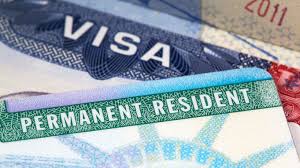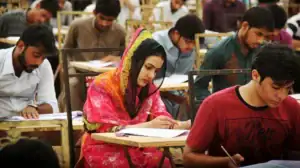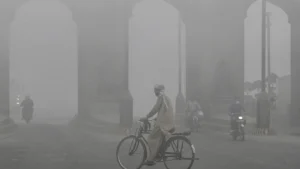Islamabad, Apr 15, 2025: As thousands of Pakistani students pursue higher education in the United States, a growing wave of concern is emerging over renewed visa restrictions targeting international students.
In a recent statement, U.S. Secretary of State Marco Rubio highlighted that American visas are a privilege, not a guaranteed right—signaling tougher enforcement likely under former President Donald Trump’s potential return to office.
Rubio reiterated the Trump administration’s firm approach to immigration, asserting that the United States reserves entry for individuals who “honor American laws and values” and contribute positively to the nation.
His statements come amidst a nationwide crackdown on pro-Palestinian protests, especially on college campuses, where foreign students have faced increased scrutiny following their involvement in demonstrations after the October 7, 2023, attacks on Israel.
Read More: New Passport Rules for Travel to Europe & Schengen
“U.S. visas are a privilege, not a right, granted only to those who aim to improve the United States, not undermine it,” Rubio stated, expressing concerns about what he called “disruptive” and “antisemitic” actions by certain international students.
Read More: Criminal Investigation Launched into London Billionaire Landlord Asif Aziz
However, Rubio also cautioned that visa holders must continue to fulfill eligibility requirements, with the State Department, in collaboration with the Department of Homeland Security and other agencies, actively monitoring and revoking visas in cases of violations.
“The Immigration and Nationality Act grants us extensive authority to revoke a visa.
Although, this power is essential for protecting our national security,” Rubio explained, referring to longstanding U.S. laws that prevent individuals who “support or advocate” terrorism from entering the country.
Though he did not mention specific students or universities, Rubio pointed to last year’s student-led protests, where demonstrators blocked roads, held sit-ins, and demanded that universities divest from companies linked to Israel.
“These foreign individuals disrupted campuses for American students, harassed Jewish peers, obstructed highways, and stormed buildings,” Rubio remarked, pledging that the Trump administration would take “strong measures” to prevent such actions in the future.
Although, The U.S. is home to over 1.1 million international students, many of whom attend prestigious universities nationwide. In recent months, several institutions have faced growing pressure from lawmakers and donors over their handling of pro-Palestinian activism on campuses.
However, Rubio also addressed the issue of constitutional rights, asserting that foreign nationals do not have the same protections as U.S. citizens regarding visa violations.
“The Supreme Court has consistently ruled that visa holders or other foreign nationals cannot use the First Amendment to justify actions that support designated terrorist organizations,” he stated.
These comments are expected to spark concern among student and immigrant advocacy groups, who argue that equating political activism with security threats could undermine academic freedom and civil rights.









